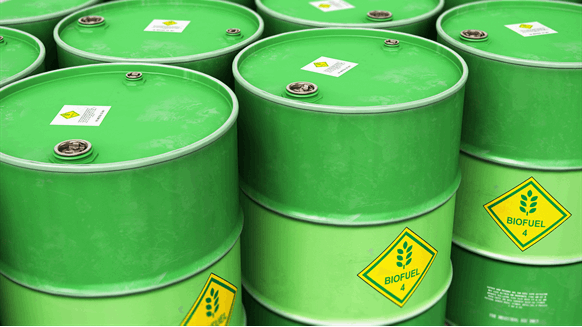Eni SPA has found another market for its HVOlution vegetable fuel, signing an agreement with the Azimut-Benetti group in what the energy giant claimed is “the first agreement in the marine industry that has to target decarbonisation”.
Biofuel made from hydrogenated vegetable oil (HVO) replaces the fossil fuel used in new yacht trials and sea trials by the Azimut and Benetti brands starting this month, Eni said in a press release on Thursday.
“This first supply of biofuel to the recreational boating industry confirms that Eni Sustainable Mobility can support maritime operators on the path to decarbonisation,” said Stefano Ballista, CEO of the Eni subsidiary, in the ad
“The agreement with Azimut|Benetti Group is a first step that will be followed in the coming months with increased sales of HVOlution also in the marine industry.”
Italian government-controlled Eni previously said it had signed a deal with a local engineering solutions company to power shipping with its HVO. This partnership with RINA SPA also envisages deploying in the naval sector blue or green hydrogen and ammonia from biogenic, renewable or waste materials, Eni said on May 29.
Giovanna Vitelli, president of Azimut-Benetti, also an Italian company, said of the agreement presented on Thursday: “It is a result that allows us to expand our area of action in reducing emissions involving the supply chain, with a focus on energy decarbonisation.”.
The initial phase supplies HVOlution to Azimut-Benetti marinas “as the first private supply points in Italy,” the statement said.
Eni and Azimut-Benetti, which has led yacht production for the past two decades according to the Global Order Book with 168 projects under construction last year, plan to build a distribution network at a later stage.
HVOlution is produced at Eni’s biorefineries in the Italian cities of Gela and Venice. Made from plant waste and waste raw materials, or crop oil, “HVOlution can deliver emissions reductions of up to 90% compared to the reference fossil blend, depending on the raw materials used for its production “, according to the parameters of the European Union. , Eni pointed out in the statement.
Eni last month announced cleaner energy collaborations with the governments of Guinea-Bissau and Vietnam, among other similar deals, as part of its emissions reduction strategy.
It has pledged to be carbon neutral by 2050 and the “development of biofuels is one of Eni’s drivers of a just transition based on the circular economy”, as stated in Eni’s annual report on its zero net progress on the roadmap.
To contact the author, please email jov.onsat@rigzone.com


